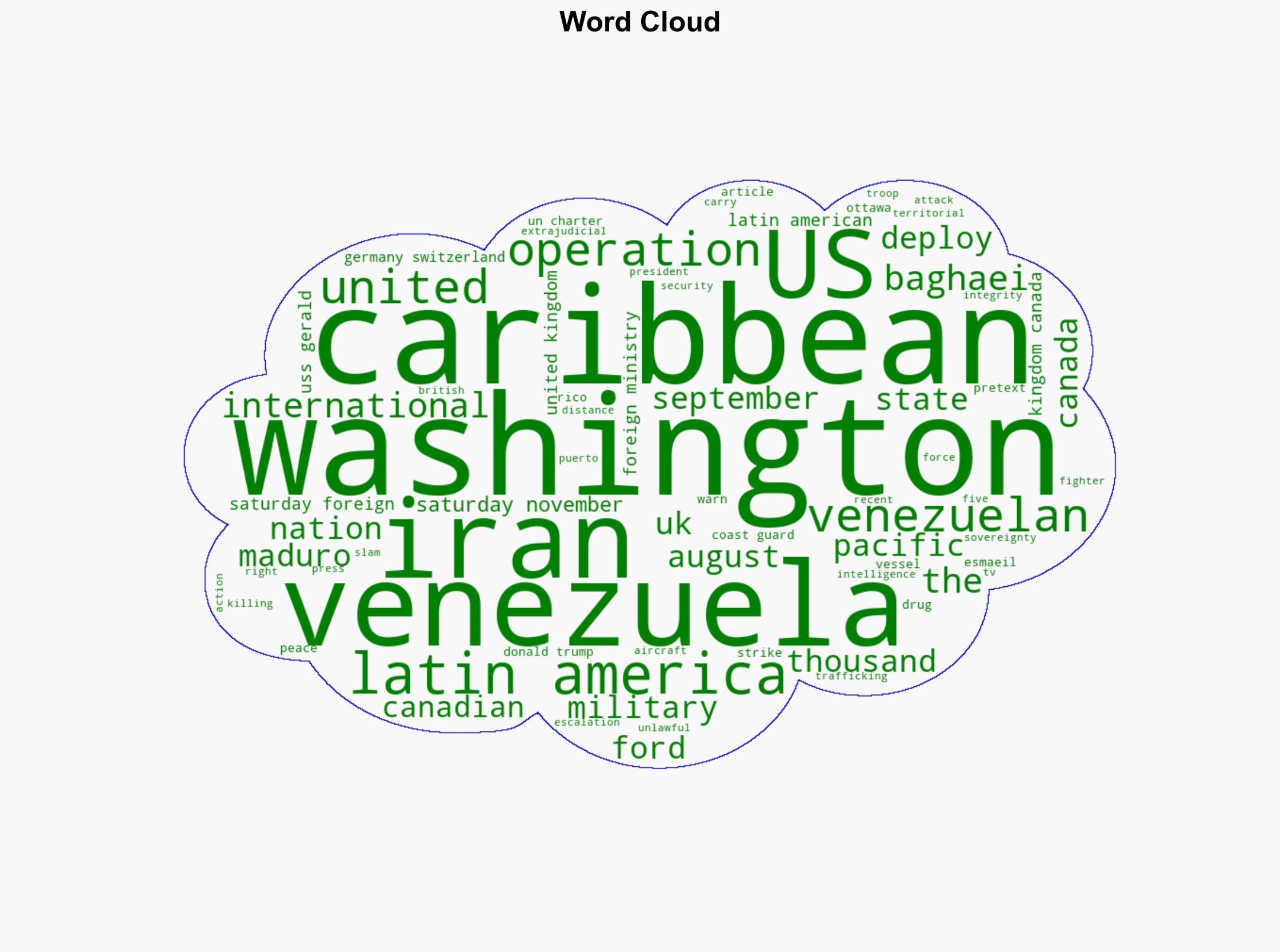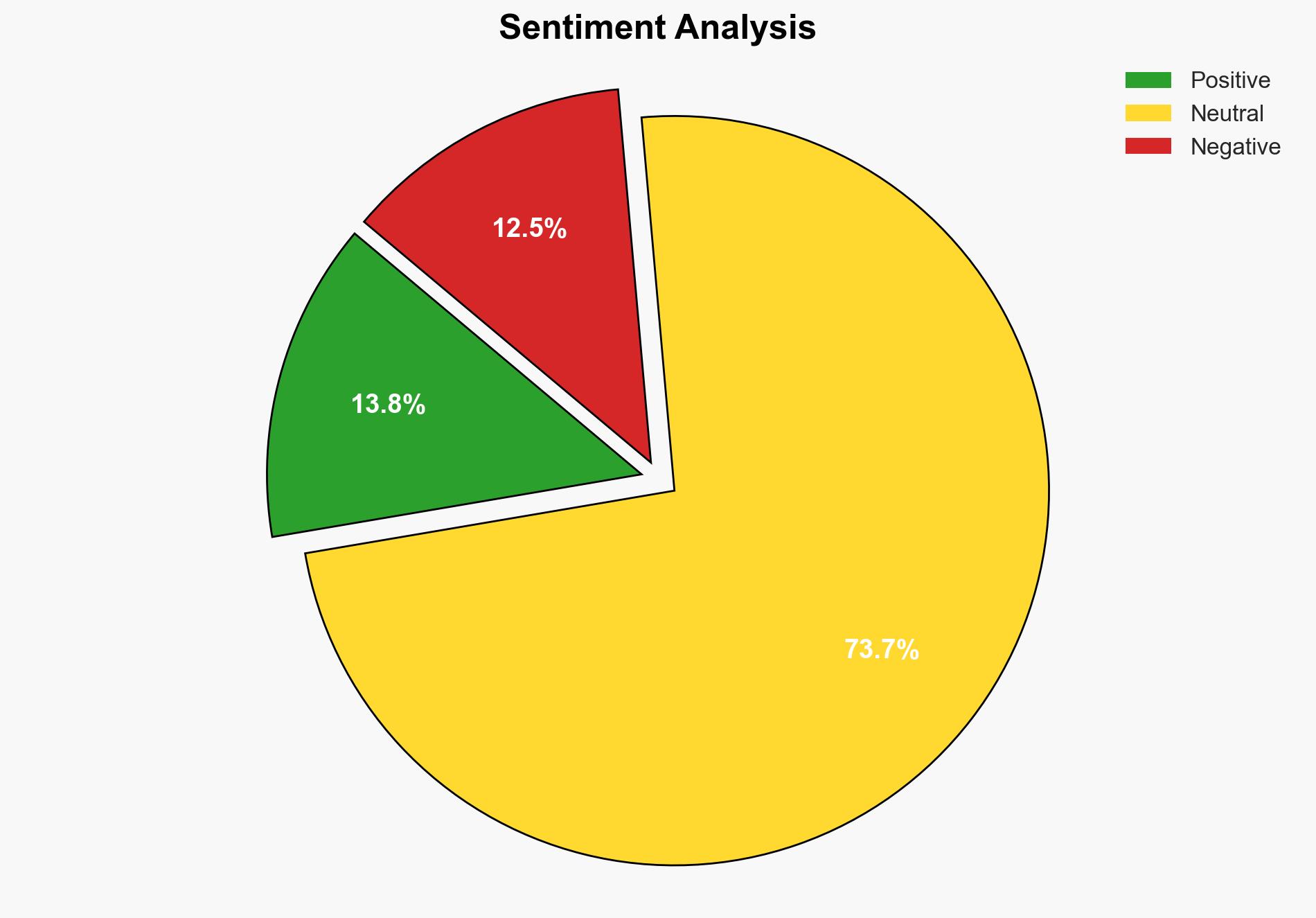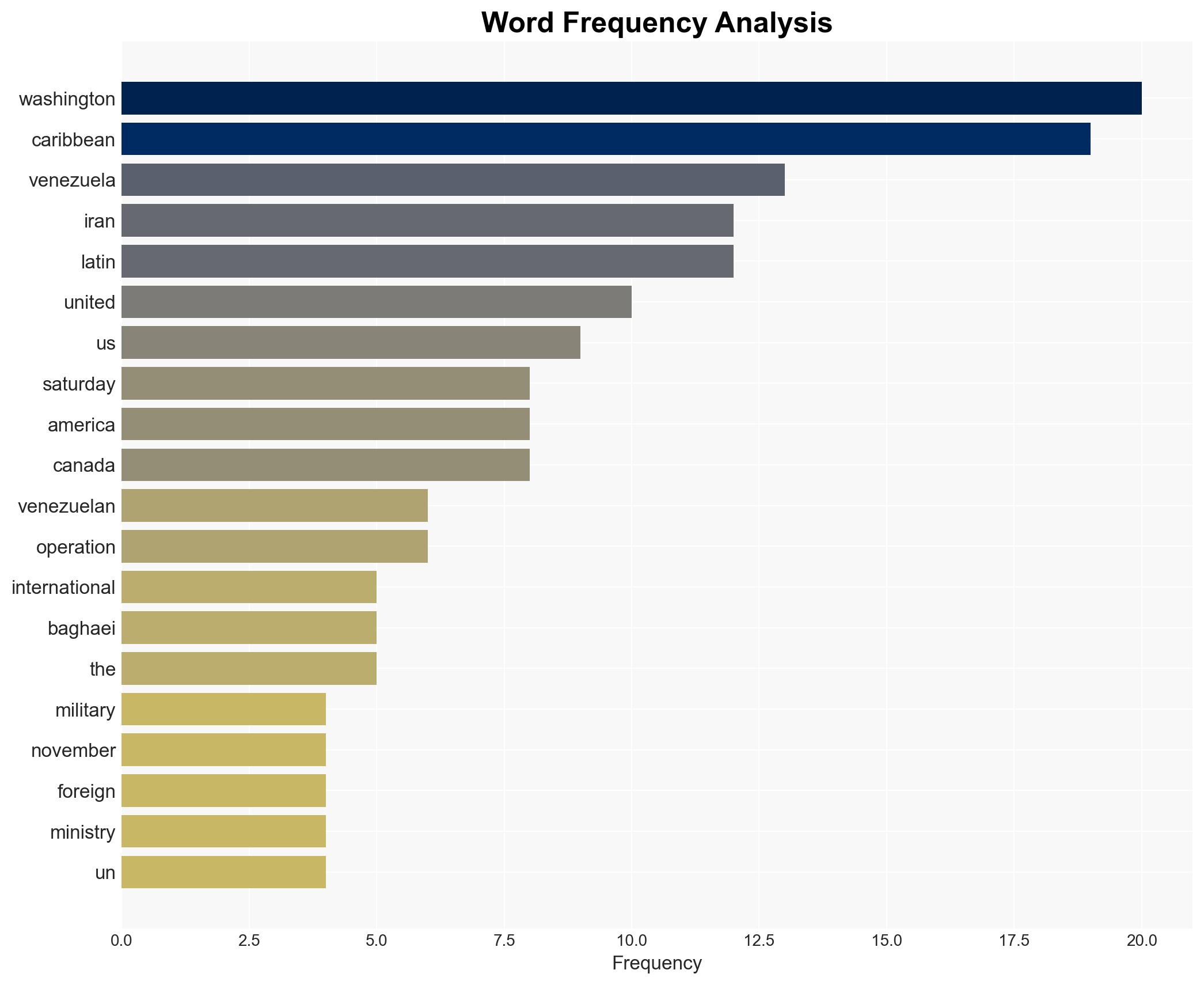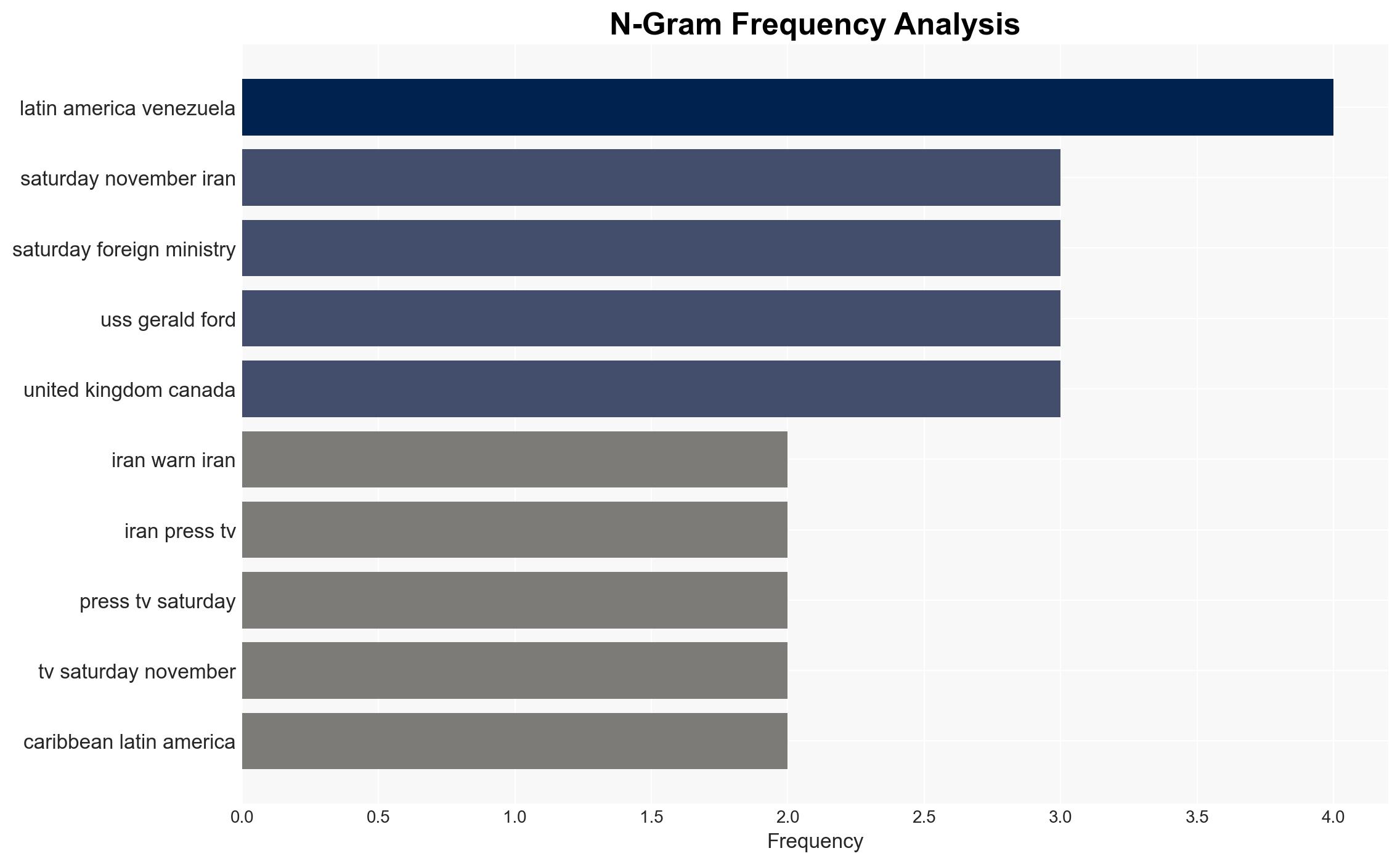US military escalations in Caribbean threaten international peace Iran warns – Globalsecurity.org
Published on: 2025-11-16
AI-powered OSINT brief from verified open sources. Automated NLP signal extraction with human verification. See our Methodology and Why WorldWideWatchers.
Intelligence Report:
1. BLUF (Bottom Line Up Front)
The most supported hypothesis is that the US military escalations in the Caribbean are primarily a strategic maneuver to counter perceived threats from drug trafficking and to exert geopolitical influence, rather than an immediate prelude to regime change in Venezuela. Confidence level: Moderate. Recommended action: Engage in diplomatic dialogue with regional partners to de-escalate tensions and clarify intentions.
2. Competing Hypotheses
Hypothesis 1: The US military presence in the Caribbean is primarily aimed at countering drug trafficking and enhancing regional security. This hypothesis is supported by the deployment of naval assets and the focus on counternarcotic operations.
Hypothesis 2: The US military actions are a prelude to regime change in Venezuela, using counternarcotic operations as a pretext. This is supported by historical US interests in Venezuelan oil and the presence of advanced military assets.
Hypothesis 1 is more likely due to the broader regional security context and the involvement of international partners like Canada, which suggests a multilateral approach rather than unilateral aggression.
3. Key Assumptions and Red Flags
Assumptions: The US is acting in good faith to combat drug trafficking. Regional partners are aligned with US objectives.
Red Flags: The presence of advanced military assets like the USS Gerald R. Ford and F-35s could indicate preparation for broader military operations. The distancing of allies like the UK and Canada from lethal operations suggests potential disagreements or concerns over US intentions.
Deception Indicators: The use of counternarcotic operations as a pretext for military buildup could mask true intentions.
4. Implications and Strategic Risks
The escalation could lead to increased tensions with Venezuela and its allies, potentially drawing in other regional actors. Politically, it may strain US relations with countries skeptical of military interventions. Economically, instability could affect oil markets. Informationally, narratives of US imperialism could gain traction, affecting US soft power.
5. Recommendations and Outlook
- Engage in diplomatic channels with Venezuela and regional partners to clarify US intentions and reduce tensions.
- Enhance transparency in military operations to reassure allies and the international community.
- Best-case scenario: De-escalation and enhanced regional cooperation on security issues.
- Worst-case scenario: Military confrontation with Venezuela leading to regional instability.
- Most-likely scenario: Continued US presence with diplomatic efforts to manage tensions.
6. Key Individuals and Entities
Esmaeil Baghaei (Iranian Foreign Ministry Spokesman), Nicolás Maduro (Venezuelan President), Donald Trump (US President at the time of deployment).
7. Thematic Tags
Regional Focus, Regional Focus: Caribbean, Latin America, Venezuela, United States
Structured Analytic Techniques Applied
- Causal Layered Analysis (CLA): Analyze events across surface happenings, systems, worldviews, and myths.
- Cross-Impact Simulation: Model ripple effects across neighboring states, conflicts, or economic dependencies.
- Scenario Generation: Explore divergent futures under varying assumptions to identify plausible paths.
Explore more:
Regional Focus Briefs ·
Daily Summary ·
Support us
·





